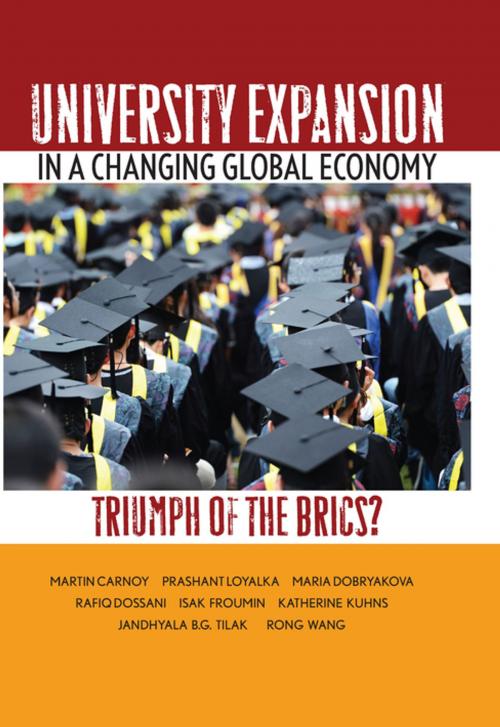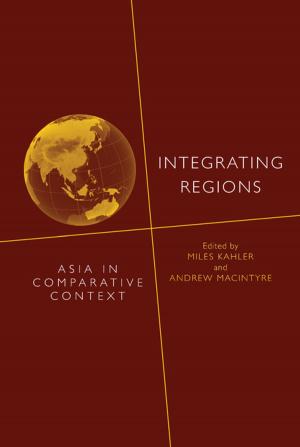University Expansion in a Changing Global Economy
Triumph of the BRICs?
Nonfiction, Reference & Language, Education & Teaching, Higher Education| Author: | Martin Carnoy, Prashant Loyalka, Maria Dobryakova, Rafiq Dossani, Froumin, Isak Froumin, Katherine Jandhyala Kuhns, Rong Wang | ISBN: | 9780804786416 |
| Publisher: | Stanford University Press | Publication: | July 17, 2013 |
| Imprint: | Stanford University Press | Language: | English |
| Author: | Martin Carnoy, Prashant Loyalka, Maria Dobryakova, Rafiq Dossani, Froumin, Isak Froumin, Katherine Jandhyala Kuhns, Rong Wang |
| ISBN: | 9780804786416 |
| Publisher: | Stanford University Press |
| Publication: | July 17, 2013 |
| Imprint: | Stanford University Press |
| Language: | English |
This is a study of higher education in the world's four largest developing economies—Brazil, Russia, India, and China. Already important players globally, by mid-century, they are likely to be economic powerhouses. But whether they reach that level of development will depend in part on how successfully they create quality higher education that puts their labor forces at the cutting edge of the information society. Using an empirical, comparative approach, this book develops a broad picture of the higher education system in each country in the context of both global and local forces. The authors offer insights into how differing socioeconomic and historic patterns of change and political contexts influence developments in higher education. In asking why each state takes the approach that it does, this work situates a discussion of university expansion and quality in the context of governments' educational policies and reflects on the larger struggles over social goals and the distribution of national resources.
This is a study of higher education in the world's four largest developing economies—Brazil, Russia, India, and China. Already important players globally, by mid-century, they are likely to be economic powerhouses. But whether they reach that level of development will depend in part on how successfully they create quality higher education that puts their labor forces at the cutting edge of the information society. Using an empirical, comparative approach, this book develops a broad picture of the higher education system in each country in the context of both global and local forces. The authors offer insights into how differing socioeconomic and historic patterns of change and political contexts influence developments in higher education. In asking why each state takes the approach that it does, this work situates a discussion of university expansion and quality in the context of governments' educational policies and reflects on the larger struggles over social goals and the distribution of national resources.















